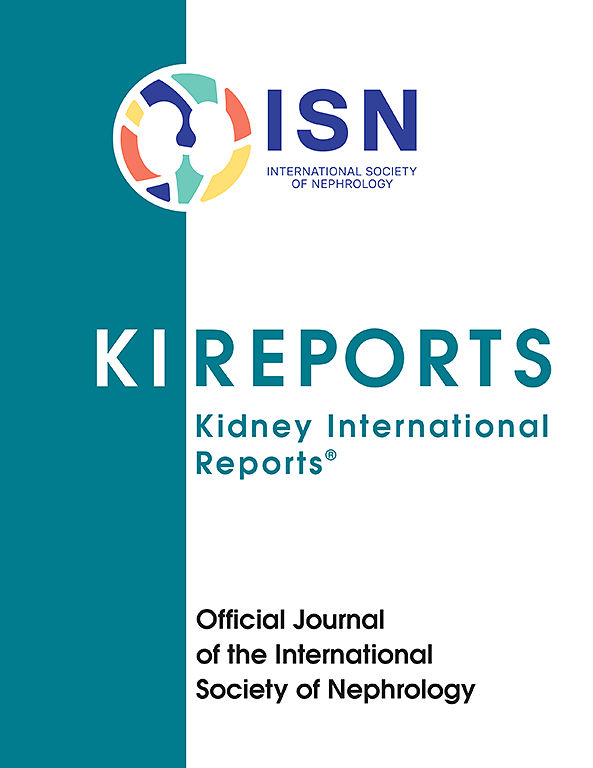病因不明的慢性肾病研究的伦理考虑:第四届病因不明的慢性肾病国际研讨会伦理小组的思考
IF 5.7
2区 医学
Q1 UROLOGY & NEPHROLOGY
引用次数: 0
摘要
病因不明的慢性肾脏疾病(CKD)是一种肾小管间质性疾病,主要影响全球热带地区的贫困农业社区,主要热点地区为中美洲和南亚。2024年2月14日至16日,中美洲和墨西哥肾病流行联盟(CENCAM)在危地马拉安提瓜举办了第四届CKDu国际研讨会。研讨会邀请了来自中美洲和世界各地的100名CKDu专家参加。第一次,小组讨论致力于在受疾病影响的低资源社区进行CKDu研究和干预的伦理挑战。专家组中具有社区研究和生物伦理学专业知识的流行病学家、肾病学家和科学家确定了几个关键的伦理考虑因素,主要集中在研究人员与受影响社区或其他CKDu利益相关者的互动上。这些措施包括调整研究优先级、研究设计、同意程序和结果的返回,以满足ckdu影响社区的需求和关注;促进北南双方在长江大学研究方面的公平合作;确保将研究成果转化为有意义的行动,以帮助减轻疾病的影响,即使科学理解仍然不完整。专家组强调,受影响的社区、当地卫生保健系统、地区政府和国际研究人员都是CKDu研究的关键利益相关者。正在进行的讨论是必要的,以确保伦理考虑仍然集中在应对与CKDu相关的新挑战和见解。本文章由计算机程序翻译,如有差异,请以英文原文为准。
Ethical Considerations for Research in CKD of Unknown Etiology: Reflections From an Ethics Panel at the Fourth International Workshop on CKD of Unknown Etiology
Chronic kidney disease (CKD) of unknown etiology (CKDu) is a form of tubulointerstitial kidney disease predominantly affecting impoverished agricultural communities in the global tropics, with major hotspots identified in Mesoamerica and South Asia. From February 14 to 16, 2024, the Consortium for the Epidemic of Nephropathy in Central America and Mexico (CENCAM) hosted the Fourth International Workshop on CKDu in Antigua, Guatemala. The workshop hosted > 100 experts of CKDu from Central America and around the world. For the first time, a panel discussion was dedicated to the ethical challenges of conducting CKDu research and interventions in low-resource communities affected by the disease. Epidemiologists, nephrologists, and scientists with expertise in community-based research and bioethics on the panel identified several key ethical considerations, primarily centered on researcher interactions with affected communities or other CKDu stakeholders. These included aligning research priorities, study designs, consent procedures, and the return of results with the needs and concerns of CKDu-affected communities; fostering equitable North-South collaboration in CKDu research; and ensuring that research findings are translated into meaningful actions to help mitigate the disease’s impact, even as scientific understanding remains incomplete. The panel emphasized that affected communities, local health care systems, regional governments, and international researchers are all critical stakeholders in CKDu research. Ongoing discussion is essential to ensure that ethical considerations remain centered in response to emerging challenges and insights related to CKDu.
求助全文
通过发布文献求助,成功后即可免费获取论文全文。
去求助
来源期刊

Kidney International Reports
Medicine-Nephrology
CiteScore
7.70
自引率
3.30%
发文量
1578
审稿时长
8 weeks
期刊介绍:
Kidney International Reports, an official journal of the International Society of Nephrology, is a peer-reviewed, open access journal devoted to the publication of leading research and developments related to kidney disease. With the primary aim of contributing to improved care of patients with kidney disease, the journal will publish original clinical and select translational articles and educational content related to the pathogenesis, evaluation and management of acute and chronic kidney disease, end stage renal disease (including transplantation), acid-base, fluid and electrolyte disturbances and hypertension. Of particular interest are submissions related to clinical trials, epidemiology, systematic reviews (including meta-analyses) and outcomes research. The journal will also provide a platform for wider dissemination of national and regional guidelines as well as consensus meeting reports.
 求助内容:
求助内容: 应助结果提醒方式:
应助结果提醒方式:


